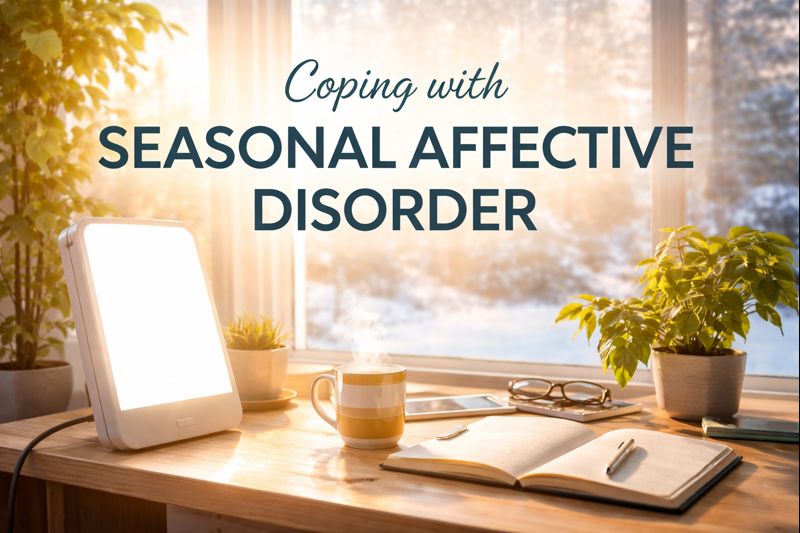Summer is upon us, and we are in the midst of the annual onslaught of “get your bikini body now!” and “foolproof fitness plan for losing five pounds!” headlines and click-bait. These days however, we are equally likely to see influencers praising body positivity and self-acceptance. Some of this is performative, as many celebrities are known for spreading a message of self-love one day and promoting a new diet fad the next, but it’s still a step in the right direction.
Body positivity and self-acceptance are crucial for good mental health and well-being, particularly in today’s society, where unrealistic beauty standards and cultural expectations can lead to feelings of inadequacy and low self-esteem. This is especially true for children, teens, and adults who are bombarded with images of what a “perfect” body should look like. In this post, we explore the importance of body positivity and self-acceptance on the mental health of individuals across different stages of life.
Body Positivity and Children
Children are particularly vulnerable to the negative effects of body shaming and unrealistic beauty standards. Negative comments about a child’s weight, shape, or appearance can lead to low self-esteem and even depression. According to a study conducted by Common Sense Media, over 80% of girls and 70% of boys in the United States have reported struggling with body image issues by the time they reach the age of 10. This is a worrying trend that can have long-term implications on their mental health and well-being.
Parents and caregivers can play a critical role in promoting body positivity and self-acceptance in children. Encouraging children to focus on their strengths and talents, rather than their appearance, can help build their self-esteem and sense of self-worth. Additionally, providing children with positive role models who embrace their bodies and emphasize the importance of healthy habits, rather than weight or shape, can help counteract negative media messages.
Social media monitoring is a crucial part of this strategy, as is regular communication about the images and messages that our children are exposed to on a regular basis. Perhaps most important at this impressionable age, however, is modeling a healthy body image and self-love. Our children look to us to set the example for how to live every aspect of life, including how to love ourselves. A primary predictor of how a child will feel about themselves and their body throughout their lifetime is the example set by a same-sex parent or caregiver.
Body Positivity and Teens
The teenage years are a time of significant physical and emotional changes, which can make body image issues particularly challenging. During this time, teens are often trying to navigate social pressures and cultural expectations, which can leave them feeling insecure and anxious about their appearance. The desire to “fit in” and be accepted by peers should not be underestimated at this age.
Research has shown that poor body image during adolescence can lead to a range of mental health issues, including anxiety, depression, and eating disorders that can last well into adulthood. A study published in the Journal of Adolescent Health found that teens who experienced weight-based teasing were more likely to engage in unhealthy weight control behaviors, such as fasting or skipping meals. However, these same victims of body-shaming are not likely to lose weight as a result. Quite the opposite, they are more likely to continue to gain weight, either as a conscious self-preservation mechanism, or an unconscious pattern of self-soothing.
To promote body positivity and self-acceptance in teens, parents, educators, and healthcare providers should engage in open and supportive communication about body image issues. Providing teens with accurate information about nutrition and exercise, rather than focusing on weight or shape, can help promote healthy habits and a positive body image. Teaching teens to celebrate the strengths and talents of their peers, rather than focusing on their appearance, can help build personal self-esteem and confidence, as well as contribute to a welcoming and inclusive culture.
Lean on professionals for help as needed. There are many resources available through nutritionists, registered dietitians, fitness professionals, and therapists that can help overwhelmed parents navigate these tricky topics.
Body Positivity and Adults
While body image issues are often associated with children and teens, adults also experience negative feelings about their appearance. In fact, research has shown that body dissatisfaction is strikingly common among adults, with up to 91% of women and 84% of men reporting feeling unhappy with their bodies.
Poor body image in adults can also lead to a range of mental health issues, including depression, anxiety, and low self-esteem. Additionally, it can lead to unhealthy behaviors, such as disordered eating, excessive exercise, destructive behavior, substance abuse, and self-harm.
To promote body positivity and self-acceptance in adults, it is important to challenge negative stereotypes and cultural expectations about body size and shape. Creating spaces, whether digital, at home, or in the workplace, that celebrate strengths and accomplishments rather than appearance, can help build self-esteem and sense of self-worth.
Additionally, demonstrating and offering opportunities to participate in healthy habits, such as regular exercise programs and balanced nutrition courses, can help individuals feel empowered about the capabilities of their bodies, improving overall well-being.
The hardest work when it comes to building a culture of self-acceptance and body positivity is examining our own ingrained anti-fat biases. This is the first step in loving ourselves and promoting a culture of health and well-being that is not tied to a specific idealized body weight or appearance.
Conclusion
Overall, body positivity and self-acceptance are crucial for good mental health and well-being at all stages of life. By promoting positive attitudes towards diverse body types, denouncing diet culture, and creating environments and programs that focus on strengths and accomplishments rather than appearance, we can support the development of healthy self-esteem and positive body image. It is important for parents, educators, healthcare providers, and society as a whole to recognize the importance of body positivity and self-acceptance and take steps to promote these values in order to support the mental health and well-being of children, teens, and adults.





0 Comments